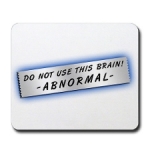AC vs DC Battery Power - Better?
Re: AC vs DC Battery Power - Better?
When I go camping I daisy chain three marine closed cell batteries together and get almost a week at 6 hours a noght with no charging.
The hernia I get carrying them to the tent we will not talk about
The hernia I get carrying them to the tent we will not talk about
_________________
| Humidifier: HC150 Heated Humidifier With Hose, 2 Chambers and Stand |
| Additional Comments: Love the HEPA filter on the airflow output |
- billbolton
- Posts: 2264
- Joined: Wed Jun 07, 2006 7:46 pm
- Location: Sydney, Australia
Re: AC vs DC Battery Power - Better?
How have you determined this?WNJ wrote:billbolton wrote:WNJ wrote:Most of the time, in the real world, they will operate at somewhat lower efficiency.
Cheers,
Bill
Re: AC vs DC Battery Power - Better?
Efficiency of an inverter will vary somewhat with the load.billbolton wrote:How have you determined this?
If an inverter claims a “peak efficiency” of XX% (at its optimum load level) you can be assured that it will operate at a somewhat lower efficiency at other than its optimum load level.
Wayne
_________________
| Mask: Ultra Mirage™ Full Face CPAP Mask with Headgear |
| Additional Comments: APAP w/CFlex @ 10 cm to 14 cm |
Re: If you want a battery . . .
hobbs, I was looking at those batteries.hobbs wrote:I would suggest looking at something like this. DRY cell technology = no acid to spill.
http://www.optimabatteries.com/optima_products/
Do you use one for your cpap backup?
I like the technology.
What kind of charger do you use?
"If your therapy is improving your health but you're not doing anything
to see or feel those changes, you'll never know what you're capable of."
I said that.
to see or feel those changes, you'll never know what you're capable of."
I said that.
- DreamStalker
- Posts: 7509
- Joined: Mon Aug 07, 2006 9:58 am
- Location: Nowhere & Everywhere At Once
Re: If you want a battery . . .
carbonman wrote:hobbs, I was looking at those batteries.hobbs wrote:I would suggest looking at something like this. DRY cell technology = no acid to spill.
http://www.optimabatteries.com/optima_products/
Do you use one for your cpap backup?
I like the technology.
What kind of charger do you use?
I use the blue optima with this charger -
http://www.batteriesplus.com/pc-36124-3 ... -0128.aspx
President-pretender, J. Biden, said "the DNC has built the largest voter fraud organization in US history". Too bad they didn’t build the smartest voter fraud organization and got caught.
Re: If you want a battery . . .
Just use them in the vehicles.carbonman wrote:hobbs, I was looking at those batteries.hobbs wrote:I would suggest looking at something like this. DRY cell technology = no acid to spill.
http://www.optimabatteries.com/optima_products/
Do you use one for your cpap backup?
I like the technology.
What kind of charger do you use?
_________________
| Machine: ResMed AirSense™ 10 AutoSet™ CPAP Machine with HumidAir™ Heated Humidifier |
| Mask: AirFit™ N10 Nasal CPAP Mask with Headgear |
| Additional Comments: S8 Autoset II for travel |
Re: If you want a battery . . .
Is this what you use for your cpap backup?DreamStalker wrote:I use the blue optima with this charger -
http://www.batteriesplus.com/pc-36124-3 ... -0128.aspx
Can I use a starndard car battery charger on these batteries??
"If your therapy is improving your health but you're not doing anything
to see or feel those changes, you'll never know what you're capable of."
I said that.
to see or feel those changes, you'll never know what you're capable of."
I said that.
Re: AC vs DC Battery Power - Better?
Supergeeky,
Back to your origanal question -
Being somewhat of a geek myself I tested the Black & Decker 400 both AC and DC. Yes DC will get you longer, I got 5 nights out of it (aprox 30 hours) useing DC, no humidifer, unpluged the CPAP during the day (I was trying to simulate an actual power emergency). I'm impressed you were able to get 8 hours on AC, I only got 5 and a half.
My suggestion is $24 is a cheap insurance policy - worst comes to worst you can always sleep in your car.
Back to your origanal question -
Being somewhat of a geek myself I tested the Black & Decker 400 both AC and DC. Yes DC will get you longer, I got 5 nights out of it (aprox 30 hours) useing DC, no humidifer, unpluged the CPAP during the day (I was trying to simulate an actual power emergency). I'm impressed you were able to get 8 hours on AC, I only got 5 and a half.
My suggestion is $24 is a cheap insurance policy - worst comes to worst you can always sleep in your car.
Re: If you want a battery . . .
carbonman wrote:Is this what you use for your cpap backup?DreamStalker wrote:I use the blue optima with this charger -
http://www.batteriesplus.com/pc-36124-3 ... -0128.aspx
Can I use a starndard car battery charger on these batteries??
I'd be interested in the answer to that, too.
Re: If you want a battery . . .
Yes you can. It is a car battery.carbonman wrote:Is this what you use for your cpap backup?DreamStalker wrote:I use the blue optima with this charger -
http://www.batteriesplus.com/pc-36124-3 ... -0128.aspx
Can I use a starndard car battery charger on these batteries??
_________________
| Machine: ResMed AirSense™ 10 AutoSet™ CPAP Machine with HumidAir™ Heated Humidifier |
| Mask: AirFit™ N10 Nasal CPAP Mask with Headgear |
| Additional Comments: S8 Autoset II for travel |
Re: AC vs DC Battery Power - Better?
Charging info is for the Optima Blue is available here: http://www.optimabatteries.com/optima_e ... .php#blue1
Yes, you can use a regular car charger, 10 amps max apparently.
You should be sure to get a quality battery charger that will shut off as the Optima becomes fully charged. They do not like overcharging.
The best thing about the Optima is that they can sit for a long time without self-discharging like regular lead-acid batteries.
Wayne
Yes, you can use a regular car charger, 10 amps max apparently.
You should be sure to get a quality battery charger that will shut off as the Optima becomes fully charged. They do not like overcharging.
The best thing about the Optima is that they can sit for a long time without self-discharging like regular lead-acid batteries.
Wayne
_________________
| Mask: Ultra Mirage™ Full Face CPAP Mask with Headgear |
| Additional Comments: APAP w/CFlex @ 10 cm to 14 cm |
- billbolton
- Posts: 2264
- Joined: Wed Jun 07, 2006 7:46 pm
- Location: Sydney, Australia
Re: AC vs DC Battery Power - Better?
So you don't actually have any hard evidence at all, and are merely guessing!WNJ wrote:Efficiency of an inverter will vary somewhat with the load.billbolton wrote:How have you determined this?
Re: AC vs DC Battery Power - Better?
I gave a brief explanation for the basis for my assertion. You chose to omit this in the quote you plucked from my reply. Clever.billbolton wrote:So you don't actually have any hard evidence at all, and are merely guessing!WNJ wrote:Efficiency of an inverter will vary somewhat with the load.billbolton wrote:How have you determined this?
Are you suggesting that the efficiency of an inverter will not vary somewhat with the load?
Why would marketers publish a “peak efficiency” number for inverters if the efficiency of an inverter never varies?
Examples of “peak efficiency” claims for some better models of pure sine inverters:
Xantrex 400 watt – 88% peak efficiency: http://www.bestconverter.com/XS400-Sine ... 0-248.html
Xantrex 1000 watt – 89% peak efficiency: http://www.bestconverter.com/PROsine-10 ... 3-250.html
Samlex 300 watt – 85% peak efficiency – on page 29: http://www.samlexamerica.com/customer_s ... an2007.pdf
Here’s a “pure sine” inverter that claims 90% efficiency at full load and 95% at 1/3 load. I hesitate to include it as it is a piece of . . . junk. I had one and returned it because its power was dirtier than my cheapo modified sine inverter, and its no-load output was only 103 VDC, but here are its claims: http://www.invertersrus.com/pwri30012s.html Why would they publish different numbers for different load levels if the efficiency of inverters cannot vary with load?
Wayne
_________________
| Mask: Ultra Mirage™ Full Face CPAP Mask with Headgear |
| Additional Comments: APAP w/CFlex @ 10 cm to 14 cm |
- billbolton
- Posts: 2264
- Joined: Wed Jun 07, 2006 7:46 pm
- Location: Sydney, Australia
Re: AC vs DC Battery Power - Better?
You produced nothing of substance regarding contemporary inverter design which provides any support at all to your assertion. Not clever!WNJ wrote:I gave a brief explanation for the basis for my assertion.
You chose to omit this in the quote you plucked from my reply. Clever.
If you run an inverter on a very small load compared to its peak load rating, it will be quite inefficent, however for contemporary inverter designs, efficency varies relatively little under typical loads.WNJ wrote:Are you suggesting that the efficiency of an inverter will not vary somewhat with the load?
See this 2004 article on practical measurements on a low end inverter.... Cheap Inverter Efficiency Test.
See this FAQ on typical inverter efficencies.... DC Inverter FAQ
See this supplier for a wide range of good quality inverters which are 90% efficent.... http://www.inverter.com.au/category1_1.htm
See this page of Xantrex inverters which claim.... over 95% peak efficiency for the inverter, and overall efficiency, including transformer losses, in excess of 93%.
Re: AC vs DC Battery Power - Better?
I gave concrete examples of good quality, moderately-priced 120-volt output inverters available in the USA, which claim "peak efficiencies" of less than 90%. I have seen no credible claims of efficiency in excess of 90% for inexpensive small 120-volt inverters (120-volt models being the only ones of use in the USA, where most of the readers of this forum reside) a standard which you claim is commonplace.billbolton wrote:You produced nothing of substance regarding contemporary inverter design which provides any support at all to your assertion. Not clever!WNJ wrote:I gave a brief explanation for the basis for my assertion.
You chose to omit this in the quote you plucked from my reply. Clever.
I’m not sure how “low end” this inverter may be compared to low-end inverters available in the USA. From what I can tell, it is for producing 240 VAC (Europe/Australia, I presume) from 12 VDC.billbolton wrote:See this 2004 article on practical measurements on a low end inverter.... Cheap Inverter Efficiency Test.
In any event, the table on the web page shows efficiencies varying from 93.2% (loss of 6.8%) at about half load, to 85.7 (loss of 14.3%) at its rated capacity, to 81.4% (loss of 18.6%) at the maximum measured load.
To my mind, losses ranging from 6.8% to 14.3% to 18.6% represents something more than “very little” variation.
This web page is focused on inverters for solar power and selling AC back to the grid. Again, I’m not sure of its relevance for low-end inverters of the type most people would consider for powering a CPAP from a battery.billbolton wrote:See this FAQ on typical inverter efficencies.... DC Inverter FAQ
I would note its reference, however, to waveform inefficiencies of modified sine wave inverters:
“However, there is more to the story. Efficiency ratings are usually given into a resistive load (basically something like a light bulb or electric heater). When running such things as motors, the efficiency actually breaks down into two parts - the efficiency of the inverter, and the efficiency of the waveform. Waveform efficiency means that most motors and many electronic appliances run better and use less power with a sine wave. Typically, an electric motor (such as a pump or refrigerator) will use from 15% to 20% more power with a modified sine wave than with a true sine wave.” (emphasis added)
I’ve seen references which give higher figures, 20% to 30%, for losses due to waveform inefficiencies with a modified sine wave inverter using other than a resistive load.
The description of the smallest model notes that it is quasi sine wave (modified sine wave). In quickly scanning the others, I did not see where any of them stipulated quasi/modified sine or pure/true sine.billbolton wrote:See this supplier for a wide range of good quality inverters which are 90% efficent.... http://www.inverter.com.au/category1_1.htm
In any event, I see their output is rated at 240 VAC, which I take to be single phase AC. Again, I’m not sure what direct relevance this has for those of us in the USA who are accustomed to using 120 VAC split phase power for most of our needs. We use 240 VAC single phase for powering things like water heaters, electric ranges, whole-house air conditioning, etc.
This is a page of Xantrex inverters for producing power to be sold back to the grid. Input 600 VDC, output 208 VAC, three-phase power. (Three-phase power is generally used only by commercial enterprises. It is almost never seen in homes in the USA, unless maybe the owner has some monster woodworking machines or similar. You will recognize it by the four wires, not three, on the power drop.) The sizes of these inverters range from 10,000 watts to 225,000 watts.billbolton wrote:See this page of Xantrex inverters which claim.... over 95% peak efficiency for the inverter, and overall efficiency, including transformer losses, in excess of 93%.
I’m confident that the coal-fired generators at the power plant are similarly more efficient than my little gasoline-powered generator that I use for charging the RV batteries when camping.
Where is the relevance?
Wayne
_________________
| Mask: Ultra Mirage™ Full Face CPAP Mask with Headgear |
| Additional Comments: APAP w/CFlex @ 10 cm to 14 cm |














